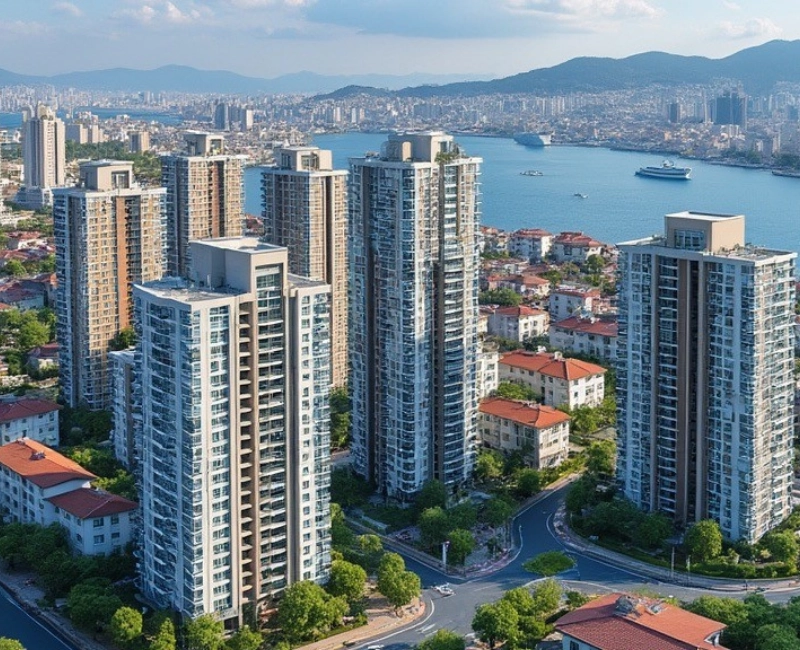The real estate sector in Turkey in 2024 has faced significant challenges. Factors such as the aftermath of major earthquakes, rapid inflation, and a growing lack of trust in construction quality have contributed to a downturn in the market. A comparison with Dubai, where similar prices yield higher-quality services, has led many people to reconsider Turkey’s market. For example, instead of spending on high-end hotels in Bodrum, people are choosing destinations like Dubai, where they perceive a better return on their investments.
Historical Context and Boom of Foreign Interest in Turkish Real Estate
Turkey's real estate appeal to foreign buyers truly began in 2015. The introduction of the Citizenship By Investment (CBI) program in 2018 created an unprecedented demand, attracting investors who sought Turkish citizenship through property investment. At the time, regulations were minimal, and many investors jumped into the market with high hopes, often opting for off-plan properties due to their affordability. However, as properties reached completion, buyers encountered delays, lower-than-expected quality, and reduced usable space. This experience shifted investor preference toward ready-to-move properties, where quality and size could be inspected firsthand.
The 2024 Landscape: Rising Costs and Declining Construction
Since the devastating earthquake in Hatay, the cost of raw materials has surged. Construction has not only become more costly but also complex, with many builders migrating abroad or being recruited by the government for reconstruction efforts. This has created a challenging environment for construction companies, which are forced to either compromise on quality or abandon projects altogether. In some areas, completed properties are now cheaper than those under construction, as rising costs have made off-plan projects less attractive.
Moving Forward: Recommendations and Strategies for Reviving the Market
To revive interest in off-plan properties, developers could consider 0% interest with 30% down and 60-month installment plans. Such financial arrangements could appeal to both Turkish nationals and foreign investors, making homeownership more accessible. Moreover, urban regeneration projects need a comprehensive approach: instead of reconstructing individual units, entire neighborhoods should be revitalized with a focus on quality and transparency. Long-term success in the Turkish market will require a shift towards sustainable, high-quality development with transparent practices, a sacrifice in profit margins to ensure long-term stability, and a commitment to restoring the trust of both local and international buyers.
By prioritizing quality, adopting transparent business practices, and focusing on sustainable urban development, Turkey's real estate sector can rebuild a foundation of trust and attract a wider audience of investors.






